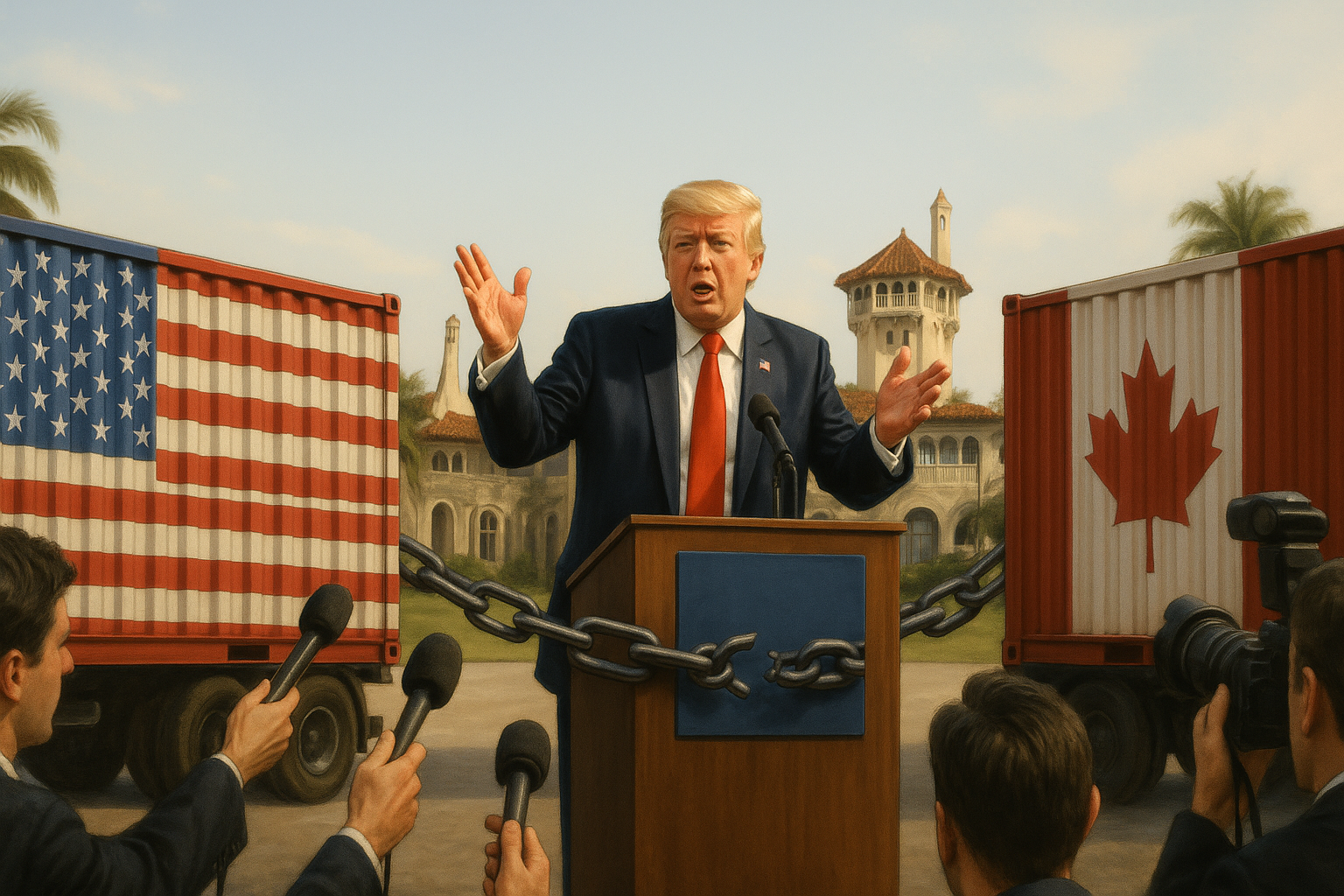In what might be the diplomatic equivalent of flipping over a poker table, former President Trump announced yesterday that U.S. trade negotiations with Canada are "terminated." Just like that. Finished. Done-zo.
The declaration came during one of those classic impromptu Trump media sessions outside Mar-a-Lago—you know the kind, where reporters cluster like seagulls around a dropped sandwich—and sent immediate ripples through North American economic circles.
"We're done with Canada," Trump declared, hands slicing the air for emphasis. "Terrible deal-makers. The worst. We're moving on to bigger, better trading partners."
Look, I've covered Trump's trade rhetoric since his first campaign, and there's something eerily familiar about this particular performance. It's got all the hallmarks of what I call "negotiation by megaphone"—loud public pronouncements that may or may not reflect actual policy intentions.
What's particularly head-scratching about this declaration is its timing. The U.S. and Canada aren't even in the midst of major trade negotiations right now! We're talking about a $2.6 billion daily trade relationship—approximately a million dollars crossing the border every twenty seconds. You can't just turn that off like a kitchen faucet.
The markets, interestingly, barely flinched. The S&P dipped a measly 0.3% before bouncing back by closing bell. Why so calm in the face of apparent economic chaos?
Because Wall Street has developed a sort of Trump-statement immune system. They've seen this movie before, haven't they? Remember 2018? Trump declared the USMCA negotiations "dead" at least half a dozen times before a deal materialized. Each pronouncement caused less market turbulence than the one before.
(It's worth noting that in Michigan alone—a crucial swing state—nearly 260,000 jobs depend on U.S.-Canada trade. Not exactly a demographic you'd want to alienate heading into election season.)
Canadian officials responded with their trademark diplomatic ice-water-in-the-veins approach. "We note the former president's comments and remain committed to our productive trade relationship with the United States," said a spokesperson for the Canadian trade ministry. Which is basically Canadian for "call us when you're serious."
I spoke with several business executives who operate across the border. Most dismissed the announcement with weary familiarity.
"Wake me when there's actual policy," one CEO told me, requesting anonymity to speak candidly. "Our supply chains haven't changed based on press conferences before, and they won't now."
What fascinates me about these episodic trade tantrums is how they reveal both the power and limitations of presidential rhetoric. A president (or former president) can certainly shake markets with words... but can they fundamentally alter economic reality just by declaring it so?
Trade relationships aren't light switches. They're more like those massive container ships you see in harbors—enormously complex, driven by powerful economic currents, and nearly impossible to turn quickly without causing damage.
Think about it. Parts for a single automobile might cross the U.S.-Canada border half a dozen times during production. Canadian electricity keeps lights on in New York. American corn feeds Canadian livestock. These relationships have deep roots.
Could this be a negotiating tactic? Sure. That's straight from the Trump playbook—make outlandish demands, create crisis, then frame any normal outcome as a stunning victory. But it's getting... predictable?
The real question for investors and businesses isn't what Trump says about Canada today, but whether any actual policy changes might follow. History suggests the correlation between dramatic announcements and policy implementation is... spotty at best.
In the meantime, that $2.6 billion in daily trade will keep flowing. Canadian lumber will still frame American houses. U.S. technology will still power Canadian businesses.
Because that's the funny thing about economic relationships—they tend to outlast political soundbites, no matter how loudly those soundbites are delivered.
